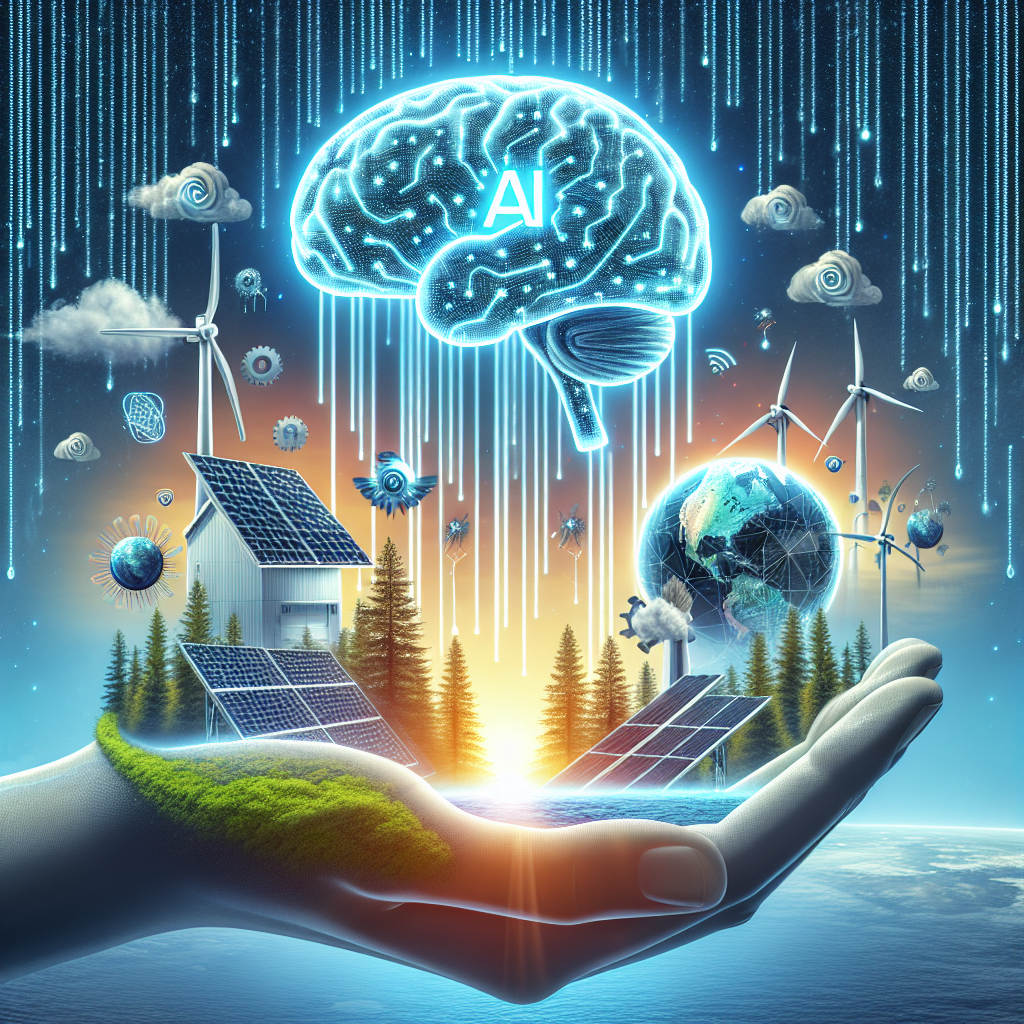Harnessing the Power of AI: How Technology is Revolutionizing Climate Change Solutions
Climate change is a pressing global issue that requires urgent action and innovative solutions. As the world grapples with the impacts of rising temperatures, extreme weather events, and environmental degradation, technology has emerged as a powerful tool in the fight against climate change. One such technology that is revolutionizing climate change solutions is Artificial Intelligence (AI).
AI refers to the simulation of human intelligence processes by machines, especially computer systems. It involves the use of algorithms and data to enable machines to perform tasks that would normally require human intelligence, such as problem-solving, decision-making, and learning. In the context of climate change, AI can be used to analyze vast amounts of data, identify patterns and trends, and make predictions about the future state of the planet.
One of the key ways in which AI is being harnessed to address climate change is through the use of predictive modeling. By analyzing historical data on carbon emissions, temperature fluctuations, and other environmental indicators, AI algorithms can forecast future climate trends and inform policymakers and stakeholders about potential risks and opportunities. This allows for more targeted and effective climate action, such as mitigation measures to reduce greenhouse gas emissions and adaptation strategies to protect vulnerable communities from the impacts of climate change.
AI is also being used to optimize energy systems and increase the efficiency of renewable energy sources. For example, AI algorithms can analyze weather patterns and energy demand in real-time to optimize the operation of solar and wind farms, ensuring that energy is generated and distributed efficiently. AI can also help to identify opportunities for energy savings and reduce the carbon footprint of buildings and infrastructure through smart building technologies and energy management systems.
Furthermore, AI is being leveraged to improve the monitoring and management of natural resources, such as forests, oceans, and wildlife. By analyzing satellite imagery and other environmental data, AI algorithms can track deforestation, monitor biodiversity, and detect illegal activities in real-time. This enables authorities to take timely action to protect ecosystems and wildlife, preserve biodiversity, and combat illegal logging, fishing, and poaching.
In addition, AI is being used to develop innovative solutions to reduce waste and promote recycling. For example, AI-powered robots can sort and process recyclable materials more efficiently than humans, increasing recycling rates and reducing landfill waste. AI algorithms can also optimize supply chains and logistics to minimize food waste and improve resource efficiency in agriculture, manufacturing, and other industries.
Overall, AI has the potential to transform how we address climate change and create a more sustainable and resilient future for all. By harnessing the power of AI, we can make smarter decisions, optimize our resources, and build a more climate-friendly society.
FAQs:
Q: What are some examples of AI technologies that are being used to address climate change?
A: Some examples of AI technologies that are being used to address climate change include predictive modeling, energy optimization, natural resource management, and waste reduction solutions.
Q: How can AI help to reduce greenhouse gas emissions?
A: AI can help to reduce greenhouse gas emissions by optimizing energy systems, increasing the efficiency of renewable energy sources, and promoting energy savings and resource efficiency in various sectors.
Q: What are some challenges and limitations of using AI to address climate change?
A: Some challenges and limitations of using AI to address climate change include data privacy and security concerns, bias and fairness issues in AI algorithms, and the need for regulatory frameworks and ethical guidelines to govern the use of AI technologies.
Q: How can individuals and organizations contribute to harnessing the power of AI for climate change solutions?
A: Individuals and organizations can contribute to harnessing the power of AI for climate change solutions by promoting data transparency and sharing, investing in AI research and development, and supporting policies and initiatives that promote the ethical and responsible use of AI technologies.
